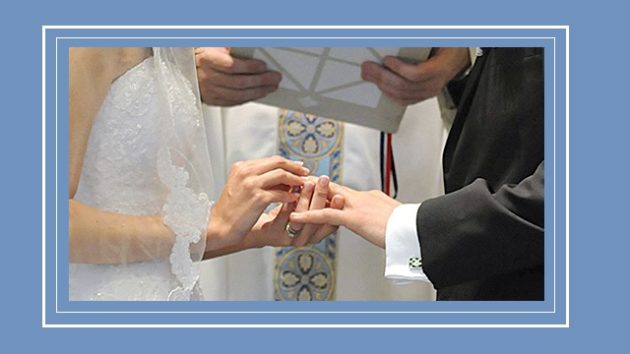Ecclesial Positivism vs. Christian Realism: The heterosexual nature of sacramental marriage
Eduardo Echeverria writes that Pope Francis recently reaffirmed Catholic teaching on the heterosexual nature of sacramental marriage, a truth based on the order of Creation.
In Politique et Société (“Politics and Society”), a recently published book-length interview with Pope Francis by Dominique Wolton, a French sociologist, Francis responds to a question about marriage: “Marriage can only be between a man and a woman. . . .We cannot change it. This is the nature of things, not just in the Church, but in human history.”
Francis thus undercuts the root objection to those Catholics – such as Australian Jesuit Frank Brennan – who support the civil marriage of same-sex couples while distinguishing the latter from marriage in a sacramental sense. Canonist Edward N. Peters has already posted a devastating rebuttal of this specious claim.

Adam and Eve in the Garden of Eden by Wenzel Peter, c. 1800 [Vatican Museum]
Is marriage a two-in-one-flesh union between a man and a woman because the Church says so, positing or postulating its existence and nature according to its own judgment, that is, Church law? If so, then, one accepts ecclesial “positivism,” the view that these are basically mere conventions. Indeed, Catholics, such as, Johan Bonny, the Bishop of Antwerp, may be regarded as an ecclesial positivist because he gives as the only reason for rejecting same-sex marriage the fact that “Church law” says otherwise. This positivism is similar to one thinking that human beings have rights because the state or society says so.
Alternatively, does the Church judge that marriage is a two-in-one-flesh union between a man and woman because that judgment is true to an objective reality, according to the order of creation? If so, then, one is a Christian realist: marriage is grounded in the order of creation, of an independently existing reality, and therefore has an objective structure judged by the Church to be the case or the way things really are.
On this view, the fact that the Church teaches that marriage is a two-in-one-flesh union between a man and a woman adds nothing to the truth-status of this dogma. This realism about the truth-status of dogmatic propositions is similar to one holding that human beings have rights by virtue of their nature as human beings, and the state simply secures, rather than confers, those rights by writing them down in a constitution.
Click here to read the rest of Professor Echeverria’s column . . .


 Eduardo J. Echeverria is Professor of Philosophy and Systematic Theology, Sacred Heart Major Seminary, Detroit. His publications include Pope Francis: The Legacy of Vatican II (2015) and Divine Election: A Catholic Orientation in Dogmatic and Ecumenical Perspective (2016).
Eduardo J. Echeverria is Professor of Philosophy and Systematic Theology, Sacred Heart Major Seminary, Detroit. His publications include Pope Francis: The Legacy of Vatican II (2015) and Divine Election: A Catholic Orientation in Dogmatic and Ecumenical Perspective (2016).
Leave a Reply
Want to join the discussion?Feel free to contribute!